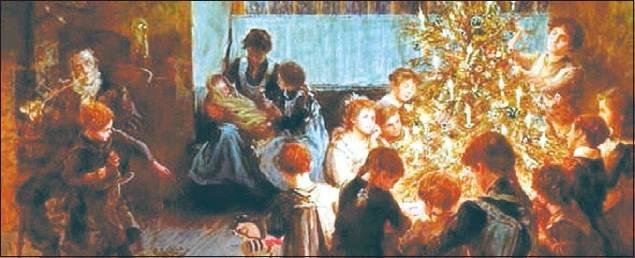When the Puritans banned Christmas
Who would ban Christmas?
Christians, of course.
Puritan Christians, that is.
“More mischief is that time committed than in all the year,” said strict Puritan Philip Stubbes in the …
This item is available in full to subscribers.
Subscribe to continue reading. Already a subscriber? Sign in
Get 50% of all subscriptions for a limited time. Subscribe today.
Please log in to continueNeed an account?
|
When the Puritans banned Christmas
Who would ban Christmas?
Christians, of course.
Puritan Christians, that is.
“More mischief is that time committed than in all the year,” said strict Puritan Philip Stubbes in the 1640s.
“What dicing, carding, what eating and drinking, what banqueting and feasting is then used to the great dishonor of God and the impoverishing of the realm.”
Stubbes believed Christmas had becomes a license for licentiousness. All those who were indulging in feasting, drinking, and merriment did not sit well with the Puritan-led English parliament.
In 1644, the Parliament, backed by Lord Protector Oliver Cromwell, banned all Christmas celebrations for 12 years.
Cromwell ordered soldiers to go through the streets and take by force any food being cooked for Christmas celebrations.
Cooking a goose for Christmas could get your goose cooked.
In 1660 when a new English leadership started their reign, they restored the legality of celebrating Christmas.
In 1659-1681, Boston Puritans banned Christmas for the same reasons. Celebrating Christ’s birth was a criminal offense.
Christmas decorations, trees and observations were believed to be rooted in pagan rituals and considered unholy.
Christmas did not become legal in Boston until 1856.
In Puritan-dominated Massachusetts, hefty fines were placed on anyone who had a Christmas celebration.
Connecticut made Christmas and mincemeat pies illegal.
While the Puritans and Pilgrims of New England, were banning Christmas festivities, the southern colonies were happily celebrating the merriment of the Christmas season. Alabama, Louisiana, and Arkansas made it an official holiday in 1838.
In 1792 when the Atheistic Cult of Reason took over the French government, they also banned Christmas.
Followers of France’s first state-sponsored atheistic religion didn’t like the religious expression of celebrating the birth of Jesus.
France’s traditional “The Three Kings Cake” was renamed the “equality cake.” When the cult’s leaders met their end at the guillotine, the ban on Christmas ended.
Emperor Napoleon Bonaparte banned this cult, and Christmas legally returned to France.
Jesus’ birthday is still a time of celebration and Santa still has his reindeer and his Christmas list.
Other items that may interest you










Comments
No comments on this item Please log in to comment by clicking here